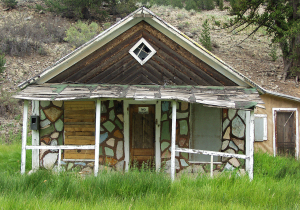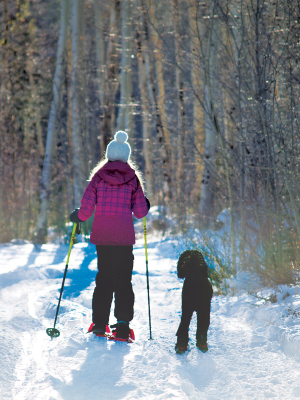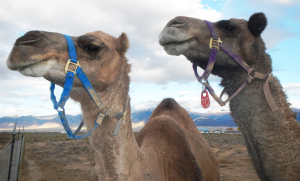by Jennifer Welch
As a farmer, I don’t ask to be celebrated. I don’t ask to be idolized or commemorated; I don’t even ask to be remembered. As a farmer, I don’t ask for high wages or safe working conditions, nor do I ask for promotions or bonuses at the end of each year. As a farmer, I don’t ask for special treatment or subsidies, and I sure as hell don’t ask for government advice or approval on what I should grow and how I should grow it. As a farmer, all I ask is this: Do you trust me? As a farmer this is the only thing I ask, and I ask it on a daily basis. I ask it of the earth and of the seeds that I place in its womb. I ask it of the livestock to which I tend and the grasses on which they graze. I ask it of my family, of myself, and of my fellow farmers. And lastly, I ask it of you, the consumer. And only after I have asked this question day in and day out for the entirety of a season – only after I have spilled the blood, pulled the roots, and harvested the very personal and very literal fruits of my labor – only then will I know if I have succeeded. And I take it for what it is. I then welcome the snow that comes and wipes my slate clean, the wind that blows my fears down valley, the cold that freezes the inhibitions that may threaten to stall my progress. I exhale. Then, as the wind dies down and the ground begins to warm, I walk out into my fields, amongst my stock, through my barns, through my every day, and I ask that very same question, all over again: Do you trust me?
If you look back in history, it becomes apparent that different time periods are largely shaped by the issues faced during those times – like Women’s Suffrage in the early 1900s, Civil Rights during the 50s and 60s, and LGBT Rights at the turn of the century and onward. If you were to ask me what the issue of today is, I would say Food Freedom. Hands down. Whether or not you agree that this freedom is at stake, I can almost guarantee that you firmly believe in your right to choose what you utilize to nourish your own body. The simple fact of the matter is that not everyone is allowed to make that choice. From mono-cropped organic fruits and veggies to factory-farmed animal proteins, the road is an easy one for consumers. But what if you want to buy small? Local? Raw? Count your blessings for what you can get – because it may be few and far between. The truth is that our current model of production in agriculture is a travesty. In the same way that driving down the interstate from coast to coast, can produce the same, monotonous food culture, our agriculture has become a setting on a clothes dryer, a combo meal at a fast-food chain, a cheap stand-in for traditional and regional delicacies that once made our landscape a beautiful quilt of enjoyable experiences and pasttimes. Maybe you didn’t see it coming, maybe you don’t even notice it now, but it is here. If only we could drive across the U.S. and find food specific to the ways of life in the varied regions we encountered: fat Southern pork grown on corn and whey, lean Western beef grazed on prairie and high alpine grasslands, and succulent citrus, fruits and veggies grown responsibly in the Mediterranean climates along the southern Pacific coast. Yet the people that choose to consume local, raw foods meet the brunt end of laws aimed at ensuring safety among the biggest and least-accountable producers in agriculture today. It hardly makes sense.
Our current model of agriculture is aimed at reducing consumer freedoms and supporting the giant corporations that control production. From GMOs to crop subsidies and animal protein monopolies to USDA processing requirements, Big Ag is a machine that works to produce cheap food at any cost. From Concentrated Animal Feeding Operations (CAFOs) polluting our water supply to subsidized mono-cropping that depletes our soil of its nutrients, Big Ag is propped up by cheap prices, pushed for by corporate lobbyists, and made possible by government subsidies and legislation. Where does the small producer fit into this model? Even in states that allow small-scale production and direct-to-consumer sales of certain agricultural products, many small farmers are left wondering why they are forced to conform to laws aimed at large-scale commercial producers. What, really, is the difference between selling a herd share for raw milk and selling one gallon at a time to multiple consumers? Why am I allowed to eat beef and pork processed at a state-inspected butcher shop, but my customers are not? How is it that GM crops and products require no labeling whatsoever, but in order to be certified organic, producers must jump through a series of hoops, fees and paperwork? Why are we asked to trust in the safety of CAFOs when they won’t let us in the door to view their operations? Our current model of agriculture doesn’t bother asking if you trust it … it demands it, from behind closed doors.
When it comes to small-scale farming, women are leading the way in production and sustainability. With the average age of the American farmer nearing 60 years of age, new farmers are a valuable asset to the world of agriculture. Women make up just over 30 percent of all farm operators, according to the last two census reports, and over 40 percent in the developing world. Women are more likely to operate small, diversified family farms – much like the farms that heavily dotted the American landscape not too long ago. Research shows that when women earn a steady income, they will spend 80-90 percent of that income on education, nutrition and housing for their families. Empowering women farmers not only benefits our current state of production in agriculture, but it also serves to benefit the children, families and communities to which these women belong. Crops and livestock also benefit from a growing number of women in the field, since women operators are more likely to adapt sustainable and humane practices into their techniques. As a woman farmer, I can attest to the trials of setting up shop in a male-dominated vocation.
My work is often discounted due to the small size of my operation. I am not always taken seriously when I tell people what I do for a living, especially when I also admit to being a homeschooling mother of three. And unfortunately, it’s not just men that give me a hard time – I get it from women, too. Other women have a difficult time understanding why I would commit so much time to the physically demanding, filthy job of raising food when I could just stay perfectly manicured and purchase it from a store. I have literally been labeled as “crazy” for choosing this lifestyle. In this day and age, when we witness a man working a demanding job, raising his family, and contributing to his community, he’s a pillar of society – but when we witness a woman doing it, she’s just plain nuts. But this is what I love most about other women farmers I have had the pleasure of getting to know: they are all heart and soul, will and must, try and try again … maybe even a little crazy. Go ahead and tell us we can’t, or shouldn’t, or won’t. I double-dog dare you.
So how can women help to lead agriculture back to its roots? By building community around our local food systems and taking charge of the process from production to consumption. By stating that the size of my landholding does not dictate the size of my womanhood or my agricultural prowess. By putting the power back into the hands of the local consumer as well as the small-scale producer. By showing that small, diversified farms can be just as productive as large farms, if not more so. By realizing that dreams aren’t bought with a price tag and a take-out box –they are fought for in bloody battles that leave you sweating and broken and proud. By jacking up your manicure and getting dirt under your nails with a garden in every yard and a cow in every cul-de-sac. Let us learn that by demanding food freedom, we are taking back one of the most basic of human rights: the right to nourish ourselves. Start a seed library. Build a root cellar. Support your local butcher. Change the way you eat. Start by walking out the door, down the street, and up the drive of your nearest farm and let that farmer ask you in earnest, “Do you trust me? Do you trust me to take care of the earth and its inhabitants? Do you trust me to keep a strong mind and a steady heart? Do you trust me to respect the food that I raise and to treat it justly? Do you trust me to learn from my mistakes and admit when I am wrong? Do you trust me to keep at it until I get it right? Do you trust me?” … Then look them in the eye and answer – quite simply – “Yes.”
Jen Welch lives, farms and writes in the Upper Arkansas River Valley, and she really only wants to know one thing: Do you trust me?



